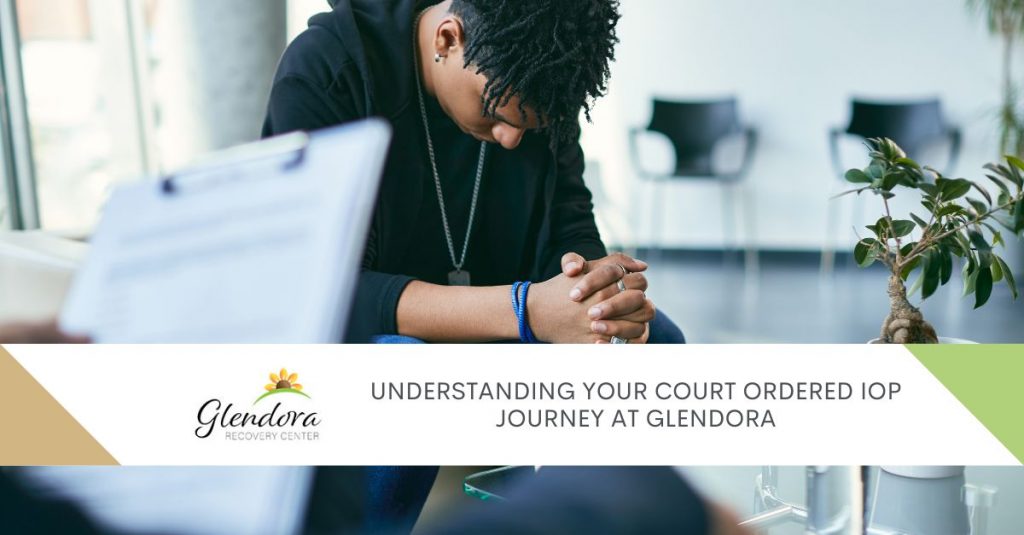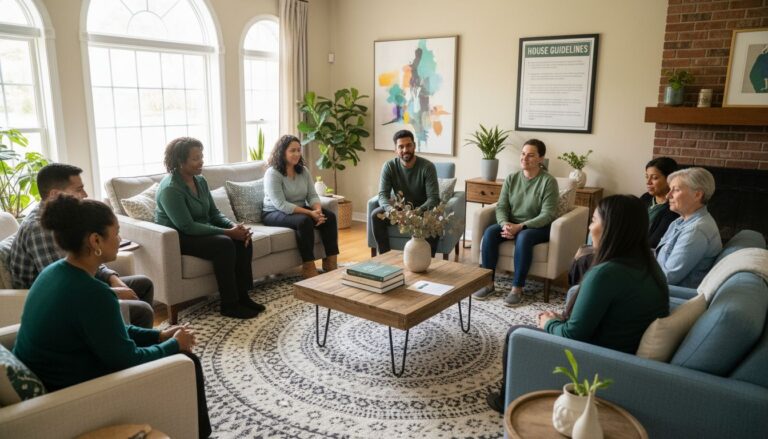The journey from legal mandates to personal healing often leads individuals to an Intensive Outpatient Program (IOP). When mandated by a court, IOP serves as a vital link between meeting legal requirements and starting the healing process. At Glendora Recovery Center, we are dedicated to supporting individuals on this life-changing journey and acknowledge the critical role that court ordered IOP plays in the recovery process.
It’s critical to comprehend the combination of therapeutic treatment and legal advice involved in court ordered IOP in order to effectively navigate its complexity. This special blend seeks to support both personal development and healing as well as fulfilling legal requirements. Our approach to court-ordered IOP at Glendora Recovery Center is based on empathy and understanding, acknowledging that each participant’s journey involves both legal compliance and personal growth and resilience.
The Legal Landscape
- Understanding Court Mandates: In most cases, court-ordered IOPs are implemented as a component of a legal ruling pertaining to offenses involving drug misuse. These programs, which prioritize rehabilitation over punishment, are meant to provide an alternative to jail.
- Common Causes of Referral: A variety of legal circumstances, including drug-related charges or DUI convictions, can lead to a referral to an IOP. The court understands that treating substance abuse as the primary source of the problem will ultimately be more advantageous than merely punishing offenders.
- Legal Obligations: Court ordered IOP participants must follow particular program standards and continue to participate on a regular basis. Frequently, these responsibilities involve consistent attendance, drug testing, and active involvement in therapy sessions.
Additionally, the legislative framework governing IOPs highlights a shift in the way society views substance abuse, moving away from punitive measures and toward therapeutic approaches. This change reflects a broader recognition of addiction as a complicated health concern as opposed to merely a legal one.
Individuals can participate in a recovery-focused environment where the aim is rehabilitation and the avoidance of future offenses by following a court-ordered IOP, which synchronizes legal goals with health results.
The IOP Experience at Glendora
- Program Structure: Our IOP at Glendora Recovery Center is designed to offer flexibility while guaranteeing thorough assistance. Participants attend many hours of therapy each week, allowing them to continue with their everyday activities.
- Therapy Types: We provide individual therapy, group therapy, and family therapy sessions as part of our curriculum. These are intended to create a network of support for recovery and treat the psychological components of addiction.
- Support Services: We also provide instructional seminars regarding substance addiction, coping mechanisms, relapse prevention tactics, and connections to neighborhood resources. Giving individuals the resources they require for long-lasting healing is our aim.
Glendora’s emphasis on customized care enhances the therapeutic experience. We are aware that every person comes with specific requirements, problems, and histories. As a result, our IOP is designed to meet these various needs and guarantee that each patient gets the support and care required for a full recovery. Every element of our program, from individualized treatment sessions to focused group activities, is intended to promote a healing and development-oriented atmosphere.
Meeting Responsibilities and IOP Requirements
There is more to managing a court ordered IOP than merely attending sessions. In addition to adhering to all program criteria, participants must actively participate in the process and apply the knowledge to their daily life.
At Glendora Recovery Center, we recognize that fulfilling these obligations might be difficult. Our staff offers individualized support, assisting participants in meeting program requirements and providing direction on how to make the most use of the resources at their disposal.
We are dedicated to helping individuals fulfill their IOP obligations even after the program has ended. We place a strong emphasis on helping participants develop coping mechanisms and life skills that they may use after their recovery. The goal of this continuous assistance is to ensure that the journey through court-ordered IOP results in long-term success and well-being, lower the risk of relapse, and provide the groundwork for sustainable recovery.
Cooperation with Legal Entities:
To make sure that our participants’ program progress satisfies the court’s requirements, we also maintain regular contact with legal entities. This cooperative strategy guarantees a seamless IOP experience and contributes to the program’s successful conclusion.
The Transformative Power of Court Ordered IOP
Even though going through a court ordered IOP might be challenging, the experience is also quite rewarding. At Glendora Recovery Center, our mission is to support clients in fulfilling their legal requirements while also starting a life-changing process that leads to long-term recovery. Our IOP is made to offer the resources, guidance, and assistance needed to make this transition easier.
Please don’t hesitate to get in touch if you’re ready to begin your recovery journey or if you have any questions about our court ordered IOP and other treatment options. Call us, or send us an email using the form on our website. Our goal at Glendora treatment Center is to support you as you move from the courtroom to the treatment room and lead a more satisfying and healthy life.



